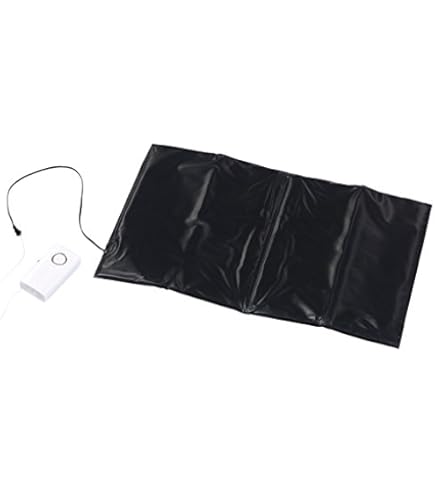Creating a Safer, Calmer Environment with the Right Dementia Care Products

Caring for a loved one with dementia presents unique emotional and practical challenges. As memory fades and confusion increases, both caregivers and individuals living with dementia face daily hurdles that can feel overwhelming. Fortunately, the right dementia care products can bring structure, comfort, and safety to an otherwise unpredictable routine.
This article explores how caregivers can use specialized tools and aids to enhance the home environment, improve daily functionality, and reduce stress for everyone involved.
Why Environment Matters in Dementia Care
The physical space surrounding a person with dementia plays a major role in their comfort and behavior. Unfamiliar objects, poor lighting, cluttered layouts, and even certain sounds or textures can lead to distress or confusion. By thoughtfully selecting dementia care products, caregivers can create a home that feels both familiar and manageable.
Simple changes can help reduce fall risks, support independence, and increase a sense of calm.
Safety First: Key Products to Prevent Injuries
People with dementia are at greater risk of falls and accidents due to limited coordination, impaired judgment, and confusion. Safety-focused dementia care products are designed to minimize hazards without taking away personal freedom.
Essential Safety Items
- Floor pressure mats alarm: Alert caregivers when someone steps out of bed or leaves a room
- Non-slip floor tape or mats: Prevent slips in bathrooms and kitchens
- Bed rails: Offer support while getting in and out of bed
- Motion-activated night lights: Guide safe movement after dark
- Automatic stove shut-off devices: Reduce fire risk from unattended cooking
These tools create a foundation for a secure home, helping individuals navigate their space with fewer dangers.
Daily Routines Made Simpler
Routine is essential for people with dementia. Predictable schedules reduce anxiety and create a sense of stability. The right dementia care products can help individuals maintain their daily routines with more confidence and less reliance on others.
Tools for Daily Activities
- Clocks with large displays and day/night indicators: Aid in time orientation
- Labeling systems: Mark cabinets, drawers, and rooms with words or pictures
- Memory boards: List daily tasks, appointments, or important reminders
- Automatic pill dispensers: Ensure timely medication intake
- Adaptive eating utensils: Designed to be easy to grip and use independently
Consistency and simplicity are key when choosing products to support daily activities.
Managing Incontinence and Hygiene with Dignity
Incontinence is a sensitive but common issue in dementia care. Addressing it with discretion and the proper tools can protect self-esteem and minimize disruptions.
Incontinence and Hygiene Aids
- Washable bed pads: Protect bedding without compromising comfort
- Adult pull-ups and briefs: Discreet and absorbent options for day and night
- Moist wipes and no-rinse cleansers: Offer easy hygiene between showers
- Toileting aids: Raised seats, commode chairs, and grab bars
Providing hygienic care in a respectful manner promotes comfort and preserves dignity.
Supporting Emotional Wellness and Sensory Engagement
As verbal communication becomes more difficult, emotional and sensory engagement becomes more important. Comfort-oriented dementia care products can reduce agitation, encourage relaxation, and offer meaningful interactions.
Sensory Support Tools
- Fidget blankets: With buttons, zippers, and textures to soothe restless hands
- Weighted lap pads: Provide a calming sensory experience
- Music players with familiar songs: Help evoke positive memories
- Therapy dolls or stuffed animals: Offer a sense of companionship
- Aromatherapy diffusers: Use calming scents like lavender to reduce stress
These tools stimulate the senses and provide a gentle way to connect with individuals even in the advanced stages of dementia.
Making Mealtime Easier and More Enjoyable
Eating can become a challenging task for someone with dementia due to loss of appetite, trouble using utensils, or distractions. Properly chosen dementia care products can simplify this essential activity.
Mealtime Aids
- Divided plates with high rims: Prevent spills and help with food separation
- Non-slip placemats: Keep items in place during meals
- Ergonomic utensils: Easier to grip for those with dexterity issues
- Color-contrasting dishes: Make food more visually recognizable
Creating a calm mealtime environment with supportive tools can make a big difference in nutrition and enjoyment.
Supporting Caregivers Through Better Organization
While many dementia care products are designed for individuals living with the condition, some tools directly benefit caregivers by simplifying the daily workload.
Caregiver Organization Tools
- Care calendars: Track appointments, medication schedules, and personal notes
- Symptom journals: Log behavioral or medical changes for healthcare reviews
- Mobile apps: Help coordinate care among family members and professionals
- Task checklists: Prevent important responsibilities from being forgotten
The more structured the caregiver’s routine, the easier it becomes to respond to changing needs with confidence and clarity.
Activities That Stimulate the Mind and Spark Joy
Cognitive decline doesn’t eliminate the need for engagement or purpose. Activities geared toward current capabilities can reduce isolation and boost mood.
Simple, Stimulating Activities
- Large-piece puzzles: Offer problem-solving in an approachable format
- Art supplies: Encourage creativity and expression
- Sorting games: Using cards or objects to engage memory and recognition
- Reminiscence tools: Photo albums or audio stories from the past
- Gardening kits: Indoor options with soil-free planting
Even short moments of engagement can uplift spirits and build positive connections.
Choosing Products That Match the Individual
Dementia is not a one-size-fits-all condition. Product choices should reflect the individual’s personality, preferences, and stage of cognitive decline.
How to Choose Wisely
- Keep it familiar: Items that resemble objects the person used before are more likely to be accepted
- Avoid unnecessary complexity: Simple designs prevent confusion
- Focus on comfort: Prioritize soft, gentle textures and ergonomic shapes
- Consider color and visibility: High-contrast items are easier to see and use
- Reassess often: Needs and abilities will change, requiring new tools
Engaging the individual in choices, when possible, helps maintain autonomy and cooperation.
Final Thoughts
The path of dementia care is filled with emotional highs and lows, but with the right tools in place, caregivers can make the journey smoother, safer, and more compassionate. Thoughtfully selected dementia care products provide far more than convenience—they offer comfort, dignity, and a sense of control.
From simple safety devices and hygiene aids to memory-support tools and sensory items, these products empower individuals to live with greater independence while easing the caregiving burden. Every tool, no matter how small, can contribute to a calmer and more caring environment.
Regularly reviewing and updating your toolkit of dementia care products ensures that your care approach evolves with your loved one’s changing needs. As you continue to learn and adapt, these tools can help you build a care routine rooted in empathy, safety, and respect.
Read More
How to Find the Best Gastroenterologist in Phoenix for Your Digestive Health









